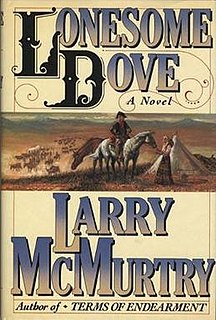
The X-Files is an American science fiction drama television series created by Chris Carter. The original television series aired from September 10, 1993 to May 19, 2002 on Fox. The program spanned nine seasons, with 202 episodes. A short tenth season consisting of six episodes premiered on January 24, 2016, and concluded on February 22, 2016. Following the ratings success of this revival, Fox announced in April 2017 that The X-Files would be returning for an eleventh season of ten episodes. The season premiered on January 3, 2018, concluding on March 21, 2018. In addition to the television series, two feature films have been released: The 1998 film The X-Files, which took place as part of the TV series continuity, and the stand-alone film The X-Files: I Want to Believe, released in 2008, six years after the original television run had ended.
The Academy Award for Best Adapted Screenplay is one of the Academy Awards, the most prominent film awards in the United States. It is awarded each year to the writer of a screenplay adapted from another source. All sequels are automatically considered adaptations by this standard.

Lonesome Dove is a 1985 Western novel by Texan author Larry McMurtry. It is the first published book of the Lonesome Dove series but the third installment in the series chronologically.
Larry Jeff McMurtry is an American novelist, essayist, bookseller, and screenwriter whose work is predominantly set in either the Old West or in contemporary Texas. His novels include Horseman, Pass By (1962), The Last Picture Show (1966), and Terms of Endearment (1975), which were adapted into films earning 26 Academy Award nominations. His 1985 Pulitzer Prize-winning novel Lonesome Dove was adapted into a television miniseries that earned 18 Emmy Award nominations, with the other three novels in his Lonesome Dove series adapted into three more miniseries, earning eight more Emmy nominations. McMurtry and cowriter Diana Ossana adapted the screenplay for Brokeback Mountain (2005), which earned eight Academy Award nominations with three wins, including McMurtry and Ossana for Best Adapted Screenplay.

Grady Louis McMurtry was a student of author and occultist Aleister Crowley and an adherent of Thelema. He is best known for reviving the fraternal organization Ordo Templi Orientis, which he headed from 1971 until his death in 1985.

The Evening Star is a 1996 American comedy-drama film and a sequel to Academy Award for Best Picture-winning Terms of Endearment, starring Shirley MacLaine, who reprises the role of Aurora Greenway, for which she won an Oscar for playing in the original film. Based on the novel by Larry McMurtry. The screenplay is by Robert Harling, who also served as director.
Diana Lynn Ossana is an American writer who has collaborated on writing screenplays, teleplays, and novels with author Larry McMurtry since they first worked together in 1992, on the semi-fictionalized biography Pretty Boy Floyd. She won a Academy Award for Best Adapted Screenplay, a Writers' Guild of America Award, a BAFTA Award and a Golden Globe Award for her screenplay of Ang Lee's Brokeback Mountain, along with McMurtry and adapted from the short story of the same name by Annie Proulx. She is a published author in her own right of several short stories and essays.

FBI Special agent Jeffrey Frank Spender is a fictional character in the American Fox television series The X-Files, a science fiction show about a government conspiracy to hide or deny the truth of alien existence. Spender was in control of the X-Files office after Fox Mulder's and Dana Scully's forced leaves in "The Beginning". The X-Files office is concerned with cases with particularly mysterious or possibly supernatural circumstances that were left unsolved and shelved by the FBI. Portrayed by Canadian actor Chris Owens, Spender was a recurring character during the fifth and sixth seasons, before returning for the ninth season of The X-Files in a guest role. He returned for the eleventh season of the show.
The 49th New York Film Critics Circle Awards honored the best filmmaking of 1983. The winners were announced on 21 December 1983 and the awards were given on 29 January 1984.
The 55th National Board of Review Awards were announced on December 14, 1983.

"Agua Mala" is the thirteenth episode of the sixth season of the science fiction television series The X-Files. It premiered on the Fox network on February 21, 1999, in the United States. The episode was written by David Amann, and directed by Rob Bowman. The episode is a "Monster-of-the-Week" story, unconnected to the series' wider mythology. "Agua Mala" earned a Nielsen household rating of 10.1, being watched by 16.9 million people in its initial broadcast. The episode received mostly mixed to negative reviews.

"Lord of the Flies" is the fifth episode of the ninth season of the science fiction television series The X-Files, and the show's 187th episode overall. It first premiered on the Fox network in the United States on December 16, 2001, and was subsequently aired in the United Kingdom on BBC Two. The episode was written by Thomas Schnauz, and was directed by Kim Manners. The episode is a "monster-of-the-week" episode, a stand-alone plot which is unconnected to the mythology, or overarching fictional history, of The X-Files. "Lord of the Flies" earned a Nielsen household rating of 6.2, and was watched by 9.9 million viewers. The episode received mixed reviews from television critics, with many critical of the episode's reliance on humor.
The X-Files is an American science fiction–thriller media franchise created by Chris Carter. The franchise generally focused on paranormal or unexplained happenings. The first franchise release—simply titled The X-Files—debuted in September 1993 and ended in May 2002. The show was a hit for Fox, and its characters and slogans became pop culture touchstones in the 1990s. 1996 saw the premiere of a second series set in the same universe but covering a storyline independent of the X-Files mythology, titled Millennium. In 1998, the first X-Files feature film titled The X-Files was released, eventually grossing over $180 million. A spin-off—The Lone Gunmen—was released in 2001 and abruptly canceled. Six years after the initial television series was canceled, another film—The X-Files: I Want to Believe—was released. In January 2016, a tenth season of The X-Files aired, featuring Carter as executive producer and writer, and starring David Duchovny and Gillian Anderson. An eleventh season premiered in January 2018.

Paul McMurtry is an American politician from Massachusetts. A Democrat, he has served in the Massachusetts House of Representatives since 2007. He represents the Eleventh Norfolk District, which includes his hometown of Dedham, Westwood, and the Eighth Precinct of Walpole.









